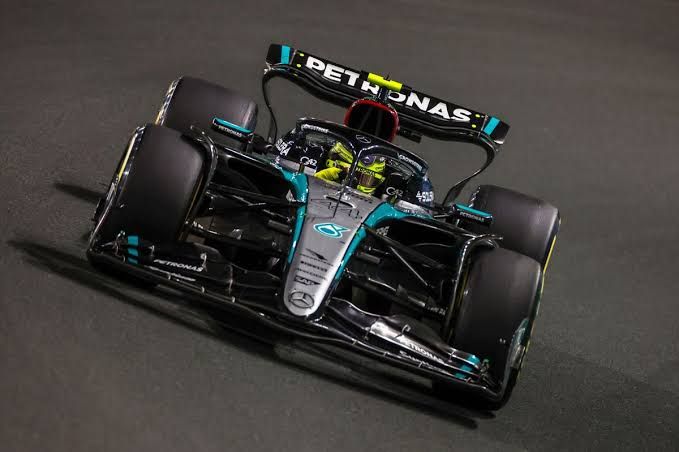Breaking news:Mercedes announce groundbreaking US partnership with…. Read more

Mercedes announce groundbreaking US partnership with first project revealed
The Mercedes Formula 1 team has teamed up with the US-based company Chestnut Carbon in a significant green initiative aimed at reducing its carbon footprint. This collaboration aligns with Formula 1’s broader commitment to achieving carbon neutrality by 2030. Mercedes shares this ambition, which includes an important milestone for the sport in 2026 when new power units will be introduced, combining a 50/50 split of electrical power and an internal combustion engine powered by fully sustainable biofuel.
Mercedes has set the ambitious goal of becoming one of the most sustainable sports teams globally. To further this objective, they have partnered with Chestnut Carbon, a company focused on carbon removal projects in the Southeastern United States. The partnership’s first project will involve converting 200 hectares of degraded farmland into thriving biodiverse forests. This transformation will see the planting of over 260,000 native trees, marking a substantial step towards reforestation and ecosystem restoration.
The benefits of this initiative extend beyond carbon sequestration. Mercedes and Chestnut Carbon aim to enhance local air and water quality, increase biodiversity, and provide economic support to rural communities involved in these projects. This initiative underscores the growing importance of the United States as a key market for Formula 1, a country where the sport has seen a rise in popularity, partly fueled by the success of Netflix’s docuseries Drive to Survive. The sport now features three U.S.-based events on its calendar: the Miami, United States, and Las Vegas Grand Prix.
Toto Wolff, one of the owners and the team principal of Mercedes F1, emphasized the team’s commitment to sustainability and its goal to lead by example. He highlighted the importance of their new partnership with Chestnut Carbon, especially in light of the growing U.S. market. He also expressed excitement about the positive impact this collaboration will have on the team’s carbon footprint as they strive to become a more sustainable global sports entity.
Alice Ashpitel, Mercedes F1’s sustainability chief, also spoke about the collaboration, noting that working with Chestnut Carbon furthers their mission to drive sustainability within motorsport. She highlighted that the project’s benefits go beyond just carbon sequestration, with efforts to enhance biodiversity, improve environmental quality, and offer economic opportunities for local communities. These initiatives are part of Mercedes’ broader portfolio of projects that combine nature-based solutions with technological carbon removal.
Ben Dell, CEO of Chestnut Carbon, expressed enthusiasm about the partnership, emphasizing their commitment to long-term environmental stewardship. He underscored the focus on ensuring the permanence of these projects through land ownership and a 100-year design plan. Additionally, Chestnut Carbon has developed a comprehensive Community Engagement plan, aiming to maintain transparent communication and positive relationships with local stakeholders, reinforcing their dedication to both environmental and community we
ll-being.






